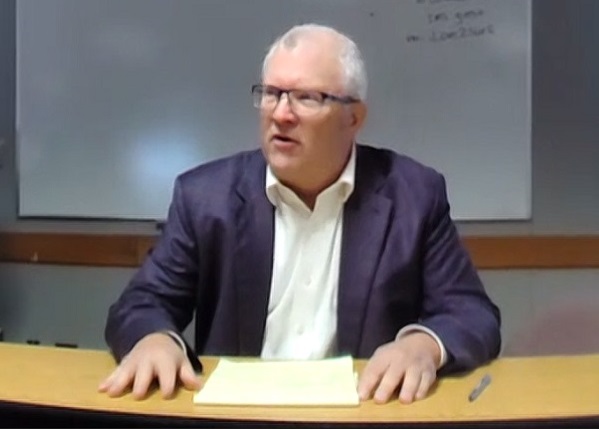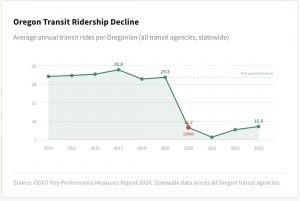Universal health plan board urged to start from an existing plan
4 min read
Oregon’s Universal Health Plan Governance Board must deliver a comprehensive plan to finance and administer a Universal Health Plan by Sept. 15, 2026. During public comment at its sixth monthly meeting, the board is urged to select one of two existing plans as a starting point.
Richard Walsh: Hello. My name is Richard Walsh. I’ve talked to you before. My idea that I talked about last time holds true. People will vote for this and support it, if you can tell them your plan is going to be as good as the governors and it’s going to cost you personally less. Very simple message.
[00:00:31] And it works, it still works.
[00:00:33] One more element that I didn’t realize before is there’s this third element of trust. If it gets complicated or whatever, they just get confused that, ‘I don’t want to get rid of my current plan.’ And then you lose them and you have to have simplicity and trust. And that should be the overall goal.
[00:00:46] As we go through, I want to emphasize the urgency that you have. The Oregon Health Plan, their committee took two years. They focused mainly on this party list that you were talking about and it took two years. They have a lot of support and they did a lot of the work. We don’t need to reinvent the wheel, I agree with what you said earlier.
[00:01:04] We have two plans we can pick from that are already basically done. We have the Oregon Health plan and we have the public employees plan. We should pick one of those. This board should pick one of those as a model and stop talking about the individual details about what service.
[00:01:20] I mean, the first committee took two years to talk about that priority list. You’re going to—you won’t have time to get this job done if you don’t get a plan picked. Once you have a plan picked as the model, then you can study it. Then you can say, ‘Well, how much does it cost? How much does it cost per person?’
[00:01:34] And if you don’t do that, if you’re going to try to design a plan, and then figure out how much it costs, you’re, you ran out of time. It’ll be hopeless. It will never work. You got to pick a plan that already exists. They’ve already done the work. Don’t reinvent the wheel. Pick one of those plans and work with that.
[00:01:49] They already have cost containment measures in them. Trust them. Trust those plans, they’ve already been worked out. And then just adopt them and work on the real work you have to do, which is administer the plan. You have the Oregon Health Plan already set up to administer the plan.
[00:02:06] If I could just say, to finance a plan, there’s two things government, you got to gather all the resources together and figure out what you got and then whatever’s left, you’ve got to figure out how to tax it. And when you tax it, it has to be less than the amount that they’re currently paying. And if it’s not, it’s not going to work.
[00:02:21] And all this work is going to be for absolutely nothing. So you do the analysis of the government plan, the Oregon Health Plan, which would be a high-water mark, it’s really great. And the government employee plan, which is less and they have copays and deductibles and all the things like Taiwan had to do.
[00:02:36] And we will probably have to do something like that, too. But try to do the Oregon Health Plan for everybody. But if it turns out that it costs individuals more when you do the financial analysis, then you can back up, but don’t go below the Oregon Public Employees Plan or you’ll lose the public.
[00:02:50] Michael Huntington: My name is Michael Huntington. I’m a retired radiation oncologist from Corvallis. I’m here because I witnessed the tragedy of patients delaying care because of cost and limited access.
I want to comment on the Growth Target Advisory Committee presentation. Sarah (Bartelmann)’s presentation shows extensive data that can be valuable to the board, if it helps achieve the primary intent of as SB 1089. That intent is for the board to design a universal health care plan, financing and administrative structure. Sarah’s presentation seems to suggest, however, that a value-based payment system is a mechanism the board should consider. Is that true? Value-based strategies all involve shifting insurance risk onto fiscal aid intermediaries or care providers.
[00:03:38] The assumption is that upfront payment and acceptance of final financial risk will control cost and reward value instead of volume of services and healthcare. However, this assumption is ideological and not based on evidence. Value-based strategies have never achieved the triple aim of improving care quality, population health, and reducing cost.
[00:04:00] The dominant cost to control is administrative. Transitioning to a single risk pool universal healthcare as SB 1089 directs the board to do would eliminate the inherent costly gaming we see in fragmented capitated value-based systems. Gaming includes avoiding sick people and skimping on care; value-based antidote to skimping on care is risk adjustment.
[00:04:23] Risk adjustment introduces a third game known as upcoding. We now have a Super Bowl game of games that none of us can afford to attend.
[00:04:32] While the data presented is enlightening and valuable, it is beneficial only when used to design a universal health care system. A value-based payment system is ineffective and irrelevant to the universal system the board has been commissioned to design. Thank you.







